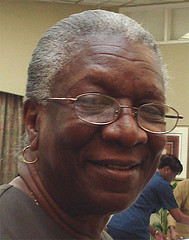I was leading a seminar today in St. Lucia for about 80 people. We
were talking about organizational culture, but I was showing them that
culture is culture…the only difference is the perspective and scope of
the conversation. So the culture of an organization, the culture of a
country or the culture of a society can be viewed as the same
phenomenon—simply different levels of what people say about ‘the way it
is around here’. In other words, my view is that culture is always a
‘story’ about the way it is and about what is and is not possible. It
encompasses who we are and our relationship with the world, and becomes
the structure of self-limiting beliefs that organize our institutions,
our individual actions and our experience of life itself.
If
we want to create a different future than the one that is predictable
in the culture we’re living in, we have to commit ourselves to a
different interpretation of what is possible—we must, therefore, create
a different story.
I’ve been thinking for a long time about ‘the culture of aging’, our
collective story about ‘the way it is’ as people grow older. For the
most part, aging is a story about loss and decline.
Human beings create culture over time. Culture exists
only in our conversations about ‘the way it is’. Therefore, we change
our culture by changing our conversations.
In the natural world, when one pushes against something, it pushes
back and summons up resources to push back even harder and to grow
stronger to survive. Resistance only produces more of what you are
resisting. This is why cultures are so difficult to change. It is why
people give up, thinking that nothing they do will really make a
difference, or become resigned, thinking this kind of fundamental
change happens very slowly over long periods of time. The problem with
the culture of aging is that most of us don’t have more than 30 or 40
years left now, and if we give the job to the next generation, they
will end up growing older into the same culture of aging that we are in.
The ‘new generation’ of elders are terrific: younger, heathier,
wealthier and more engaged than any generation that has come before (at
least by some people’s reckoning). We are pushing the timeline out
further and further for when ‘old age’ begins but we are still
resisting ‘old age’. Most of the movements in society to change aging
are actually ‘anti-aging’ efforts or attempts to ‘stay young longer’.
These don’t change the culture—they actually reinforce the very thing
we want to change.
We are used by culture. What we resist persists. If we really want
to transform what is possible as we grow older, we must begin by seeing
that we have a choice. We don’t have to resist aging. What we need to do is create a new story.
My story is that age is an interpretation and that the future is up
to us. We can take more responsibility for the world as we age, not
less. We can put on our leadership hats after we retire, not take them
off. We can generate more quality of life, more happiness, more love,
more health, more creativity, and even be more valued than at any other
time in our lives. And on the last day of life, we can have as much
possibility as the day we were born.

